Challenging Hair Discrimination Through Racial Narratives, Industry Knowledge on the Economics of Hair and Counter Literacy Equality, Diversity Strategies
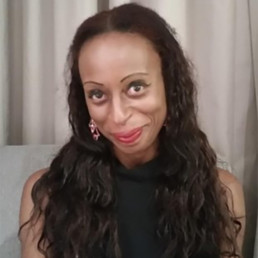
Written by Dr Pamela Odih
Pamela is a senior lecturer in Sociology within the Sociology department at Goldsmiths University of London. Her research specialises human rights communication and the significance of me/space to the regulation of subjects and construction of gendered subjectivity with specific regards to organisational analysis and educational policy.
On 27th October 2022 the Equality and Human Rights Commission (EHRC) published new guidance aimed at ensuring that: “Pupils should not be stopped from wearing their hair in natural Afro styles at school” (EHRC 2022). The guidance is supported by resources that are “endorsed by World Afro Day and the All-Party Parliamentary Group for Race Equality in Education” and are designed to assist school leaders in ensuring that “hair or hairstyle policies are not unlawfully discriminatory” (ibid.).
In October 2024, having successfully applied for a British Academy and Leverhulme Trust small grant, I began my empirical study which is entitled “Challenging Hair Discrimination Through Racial Narratives, Industry Knowledge on the Economics of Hair and Counter Literacy Equality, Diversity Strategies”. Research Focus: The proposed research is partly an impact analysis of the application of EHRC resources, into school policies and the responses of school leaders to the suitability and adaptability of these policies.
An additional focus of the study is to envisage the scope and form of guidance on anti-race-based hair discrimination that informs young people as consumer citizens in respect to their cultural heritage of hair sculpture as an expression of racial belonging. I am currently interviewing UK and USA NGOs, charities and human rights legal practitioners to ascertain the impact of their activism in respect to PSHE and citizenship studies educational policy and race equality legislation.
If you have such involvement in this subject area, I would greatly appreciate interviewing you. Please, in this regard, contact me at Goldsmiths University, where I am a Sociology Senior Lecturer. The outcome of the research is scheduled to be disseminated in academic journals and the creation of an open access teaching resource to support consumer citizenship secondary school lessons.
I am also collaborating with the spoken poet Rider Shafique to create three long-form poems for presentation at scheduled multiculturalism festivals within the academy; we also envisage co-creating and illustrating a series of children’s books. I’ll post again as the research progresses and shall provide some interim findings which I hope will be useful for your respective projects.
Reimagining Your Curriculum: Steps to Embrace Diversity and Equity
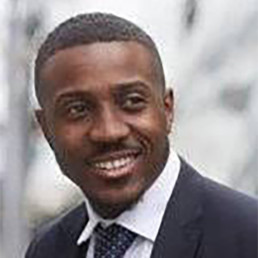
Written by Krystian McInnis
Krystian McInnis is a Religious Education consultant, advisor, and researcher specialising in decolonising and diversifying Religious Education. With a career that spans the public, private, and charity sectors, he brings extensive national and international experience in curriculum diversification and decolonisation. As the Co-Founder of Reimagining Education, Krystian is dedicated to creating a more inclusive and equitable educational system where everyone feels seen, heard, and that they belong.
In recent years, educators worldwide have begun to scrutinise their curricula for underlying biases and exclusions, calling for a wider range of diverse materials to enhance every student’s learning journey (Kara 2022). While many teachers hold a strong commitment to equality, their curricula still lack diversity, and often fail to reflect the multiplicity of perspectives that make up our increasingly globalised world. As societies grow more diverse, educational institutions face increasing pressure to adapt curricula that genuinely reflect the communities they serve. For many educators, “reimagining” the curriculum to embrace diversity and equity means moving beyond mere rhetoric or the adding of decorative slides; it requires a transformative approach that at its epicentre embraces inclusion, broadens perspectives, and fosters a deeper understanding of global issues. This ultimately brings to the forefront an essential question: how can educators reimagine and enrich their curricula to ensure all students see themselves represented, where they can feel seen, heard and believe that they belong.
The Need for Change
In May 2020, following the senseless killing of George Floyd Jr, amidst a time of isolation and solitude, many individuals began questioning not only their personal beliefs but also the societal structures that perpetuate inequality. The mere stance of not racist, no longer suffice, saw many people make an active shift towards reconsidering their position to one of anti-racist, intentionally seeking ways to disrupt and remove the barriers many face on a daily basis worldwide both from a personal and an institutional perspective.
With this being the landscape, many teachers decided they wanted to make meaningful changes and begun questioning their lessons and curriculums, exploring the inclusivity of them and to what extent they were representative of the diverse nature of the country and communities they served. Nabagereka and Melzer (2022) argue that for children and young people to fully engage with their learning, they need to see themselves reflected in what they are learning about. Furthermore, they argue that by not feeling represented in the curriculum, this can be disempowering and discouraging, negatively impacting pupil wellbeing, stopping them from achieving their full potential. Therefore, diversifying the curriculum extends beyond a mere nice to have, but rather critical for student care.
Engaging All Learners: The Imperative of an Equitable Curriculum
A diverse and inclusive curriculum plays a fundamental role in developing cultural competence, empathy, and critical thinking in students. It allows all students to see themselves and others within their learning, not only fostering a sense of belonging but also supporting with the much-needed work on social cohesion too. Banks (2015) argues that inclusivity in education not only enriches the learning experience for students from marginalised communities, but also benefits all students by broadening their worldviews and preparing them for a multicultural society. Without a deliberate effort to incorporate diverse perspectives, we risk perpetuating a curriculum that reflects an extremely narrow and predominantly Eurocentric, White male-dominated narrative.
Whilst the uptake has been slow, and efforts lagging within many institutions, the call for a more diverse curriculum has been clear. The Commission on Race and Ethnic Disparities (CRED) report recommended curriculum reforms to increase the representation of Black, Asian, and Ethnic Minority communities, arguing that more inclusive content could help reduce racial disparities (CRED, 2021). Additionally it asserted that a curricula reflecting a range of experiences, histories, and perspectives contributes to a learning environment that is more engaging, inclusive, and better prepares students for citizenship in a multicultural world.
Limitations in Traditional Curricula
It would be remiss of me however, to not state there are barriers and limitation. The first step however, in building a diverse and equitable curriculum is acknowledging the limitations in traditional approaches. Traditional curricula often exhibit an over-reliance on Western-centric authors, perspectives, and historical events, particularly within the humanities. Within this we have seen the intentional omitting of stories, contributions and voices of cultures, far too often classified as ‘other’ (Au, 2009). Therefore, a curriculum audit is a way which can identify gaps, guiding us to understand where imbalances and exclusions may exist. I would recommend that when starting an audit to critically assess a curriculum, it is vital to consider the following questions:
- Are there voices, narratives, or cultural perspectives missing from my curriculum?
- Does the curriculum offer diverse perspectives within each subject area?
- How does the material encourage students to engage critically with the world around them?
Building an Inclusive Curriculum
Creating an inclusive curriculum involves more than the mere adding of decorative diverse images, but rather relies on three core elements: representation, relevance and reflective engagement.
Representation: Critical to an inclusive curriculum is the reflection of a wide range of perspectives, including those from various racial, cultural, socioeconomic, and gender groups. It is important to remember, diversification does not remove existing literary masterpieces by White authors, nor does it erase Western history, or remove Europe from the map in geography lessons as some might suggest, but rather broadens the amount of narratives being explored. For example, presenting African nations not merely through a lens of poverty, but also in terms of their rich resources and complex histories offering a fuller picture of the individual countries. In doing so, it helps to present a balanced narrative of events allowing students to engage with an in-depth, more nuanced understanding of the world around them.
Relevance: Schemes of work should be culturally and contextually relevant to students’ lives. Whilst the communities practitioners serve now might be monocultural, it is imperative that they are preparing their students for the wider, multicultural Britain they live in, and the globalised world around them. Critical to a diverse and inclusive curriculum is one that not only engages students academically but also fosters critical consciousness, helping students to understand, question, and reshape the world they live in, allowing for them to question and formulate their own worldviews. By doing so, we can at least begin to develop a curriculum that resonates with students’ identities and experiences, enabling them to connect their learning to broader societal issues.
Reflective Engagement: As reflective practitioners, it is of upmost importance that we encourage students to reflect too, with a robust diverse curriculum allowing for this to take place. An inclusive curriculum encourages students to question dominant narratives and think critically about issues of power, privilege, and inequity. Ultimately, through reflection, we create the space for students to explore and understand their own positionality too. Within this, students move from being merely passive recipients of knowledge to active participants in uncovering and understanding complex social dynamics (Au, 2009).
Conclusion: Embracing Diversity as a Journey, Not a Destination
Creating an inclusive curriculum is not a one-time task but an ongoing journey. While some may fear the time commitment required for these changes, it’s important to remember that small steps—such as integrating diverse materials or adapting lesson plans—are all meaningful progress. By embracing diversity iteratively, we can gradually build curriculums that reflects the values of equity and inclusion.
Note, resistance from stakeholders may arise, especially when changes challenge long-standing traditions. However, professional development and collaboration with colleagues is crucial for this work to be successful, whilst also not overwhelming ourselves or the curriculums already in place.
Whilst the journey might be difficult, it is certainly a rewarding one. Through intentional and incremental work of diversifying your curriculum now, I assure you one thing: The work you do won’t just change the classroom, but will change you as a person too. As practitioners, we have an opportunity and an obligation to be part of this change, so that the teachers of tomorrow no longer have to justify the necessity of a representative curriculum and their pupils never have to suffer the pain of questioning their place in the classroom or society again. An inclusive curriculum not only enriches the educational experience but also helps students navigate a complex, interconnected world. By transforming our curricula, we take an essential step toward creating a society where all students feel seen, heard and that they belong. While the journey may be complex, the rewards—students who are more empathetic, culturally competent, and engaged global citizens – are worth it.
Don’t go Short on Inclusion – Be-long
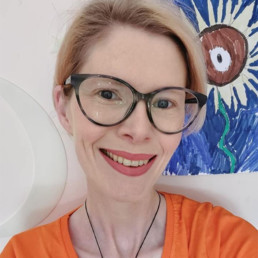
Written by Fliss Goldsmith
Fliss is an Emotional Wellbeing and Empowerment Coach and Inclusion and Belonging Consultant. Having worked for 2 decades across the Education sector as well as with individuals and corporates she has a breadth and depth of experience striving to create intentionally inclusive spaces for authentic belonging.
I was blessed to be part of DiverseEd’s July event at the Brownfield Institute in Wolverhampton. On arrival the empowering energy was palpable, and I knew immediately that everyone in attendance had a shared vision – for a kinder, safer, fairer future for education.
My part in the day was to deliver a session on Belonging and how that looks in education spaces. As an Asexual, disabled cis gender woman I have my own perspectives and wanted to share them as well as gain those of others. I remind myself often that intersectionality is at the heart of our learning.
We began with sharing our understanding of belonging – what does it mean, feel like and most importantly what is it not. The group was invested and together we found that belonging is about being able to be authentically yourself and still being seen, heard, respected and reflected in a space. The opposite, quite interestingly, of belonging is ‘fitting in’. Fitting in demands that we change who we are to match the space we are in, whereas belonging demands that we remain true to ourselves.
It sounds simple but it really isn’t. Belonging often stops before it gets going because places, people and situations are not inclusive. For too long we have lived in a white, heteronormative, cisgender, able bodied neurotypical, middle-class society with everything designed to support those characteristics. If you fall outside of these then you are faced with being ‘othered’ which immediately precludes you from belonging. As an Asexual I have not felt like I belonged since school, where it was a given that Allonormativity and Amatanormitivity were where we were all headed and if not, then there must be something fundamentally wrong with you. (spoiler alert there isn’t!)
The session held space for the experiences of those in attendance and I was humbled at the response. I heard from a non-binary attendee that they rarely felt like they belonged as they were misgendered and how language was paramount, every misuse of pronouns creating visceral pain. A black woman shared her experiences of racism and sexism within previous job roles and how that had moulded how she presented, shrank herself to not stand out. Ultimately these practices of fitting in create nothing but damage to the physical, mental and emotional wellbeing of the victim.
So how do we do it better in our educational spaces? There is hope and there are so many great Educators out there already trying to create inclusive spaces where everyone is supported in being their authentic selves.
Here are my top 10 ideas for making sure that the spaces you have control over cultivate a sense of belonging for anyone who enters them.
- Prioritize Connection – Create spaces where meaningful conversations can take place.
- Create interest groups – Ensure an accessible way for staff/students to put forward their ideas (anonymous point of entry essential.) Remember the mantra ‘nothing about us without us’ always consult someone who represents the group if they are comfortable being involved.
- Have courageous conversations – you are a role model and if you can share your struggles and challenges this immediately gives others permission to do the same.
- Be Accountable – a clear, kind apology is essential – but it means nothing without a change of actions going forwards.
- Call it in before you call it out. If someone is behaving in a way that contravenes the rules of your spaces, then call them in to see what is at the root of their poor behaviour.
- Celebrate as many ‘days’ as you can – but don’t let it stop there, yes LGBT+ History Month is February but make sure the flags are there all year long.
- Cross curricular representation – Make sure that every subject has resources that reflect different cultures, genders, sexualities, abilities etc.
- Spread the Art of Appreciation – share what you appreciate and get others to share theirs, this harnesses the brains neuroplasticity and creates positive neural pathways making people feel more connected.
- Teamwork is essential but don’t let it isolate people – use numbers not genders for teams and ensure teams are celebrated in a way they are comfortable with (does your Autistic student want to go on stage to get their prize? Maybe, you’d have to ask them- don’t assume)
- Ensure inclusive practices – visual descriptors, announcing your pronouns, inclusive language, accessibility, not making assumptions etc.
Inevitably there will be mistakes, steps sideways and ‘oh no’ moments when trying to build an inclusive space. When we know better, we must do better – so apologise and rectify and model that behaviour as a growth step.
The future needs incredible leaders to ensure we can all authentically belong. You’ve got this!
LGBT+ Education in School - Having Effective Conversations with Parents
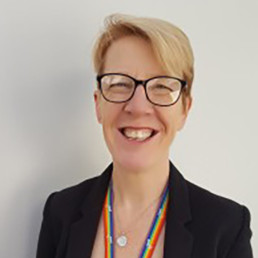
Written by Mel Lane
Mel Lane (she/her) is Head of Education at Pop’n’Olly. She has been a primary school teacher and teacher trainer for nearly 30 years and worked in schools on LGBT+ inclusion policies with thousands of children and school staff. Mel is a co- author of What Does LGBT+ Mean? (Pop’n’Olly, 2021).
When it comes to LGBT+ education in school, parents are often portrayed in the mainstream media as unsupportive and battling with teachers – but the reality is completely different. 82% of parents actively want their children to be taught about diverse families, including those with same-sex relationships. Having worked with over 10,000 children, I have experienced, time and time again, that parents are almost always supportive of LGBT+ inclusion work in school.
However, there are of course still a minority of parents who struggle with, and have concerns, about LGBT+ education. This is why empowering schools and teachers to have effective conversations is important. But how do we do this? Here are some themes that you may wish to include in these discussions:
Ethos and Values
Chances are you already promote equality and celebrate difference in your school. Maybe it’s in your school mission statement? e.g.
‘Brave, unique, caring and kind’
‘Hope, community, respect, love’
‘Respect for each other, Respect for our school, Respect for learning’
LGBT+ isn’t an add-on, it’s part of this whole-school approach. So when having conversations with parents, it’s vital you keep coming back to your whole-school ethos and discuss how LGBT+ education is a part of this.
Children’s Mental Health
We know that children learn better when they feel relaxed and able to be themselves. One teacher was so pleased to share with me how much more animated and engaged a Year 1 child had become after a session on families included two Mums, just like her family. All children benefit from conversations about LGBT+ inclusion because when we celebrate diversity we send a message to everyone that they are welcome in school whatever their uniqueness looks like.
Knowledge and Understanding
63% of 8-15 year olds know someone close to them who is LGBT+ Children are already having conversations about LGBT+ lives and some of them are searching for information online. School is a safe place where children can ask questions of trusted adults to find out reliable, accurate information. UK children all live in a country where being LGBT+ is protected by law and we shouldn’t hide this information from students. In fact, under the United Nations Convention on the Rights of the Child (UNCRC), all children have a right to this information.
Legal Obligations
Helping young people understand and develop positive relationships with people who are different from them is part of UK law and included in the Relationships and Sex Education (RSE) Guidance for Schools
The Public Sector Equality Duty (Section 149 of the Equality Act, 2010) states that schools must have due regard to “the need to eliminate discrimination, advance equality of opportunity, and foster good relations between persons who share a relevant protected characteristic and persons who do not share it.”
Ofsted guidance also states that, “Schools can choose to teach the beliefs of any faith on the protected characteristics. They may explain that same-sex relationships and gender reassignment are not permitted by a particular religion. However, if they do so, they must also explain the legal rights of LGBT people under UK law, and that this and LGBT people must be respected”
Supporting Parents
Sometimes parents worry that life will be harder for their child if they are LGBT+. Sometimes they’re worried about being judged by other parents. Schools often have a lot more experience supporting LGBT+ young people than parents do. A parent of a trans child told me how much better they felt that their child’s school was supportive of their child’s transition – it gave the parent confidence and helped them navigate a completely new and sometimes challenging time.
Conversations with parents almost always eliminate fears, tackle misconceptions and build better relationships. You can find out much more information on how to have these conversations in Pop’n’Olly’s ‘Discussions With Parents’ document.
How Do We Make Our Classrooms Feel Like Home to Each and Every Student
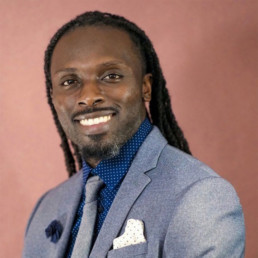
Written by Kwame Sarfo-Mensah
Kwame Sarfo-Mensah holds a Bachelor’s degree in Mathematics and a Master’s Degree in Elementary Education from Temple University. For nine years, he served as a middle school math teacher in Philadelphia, PA and Boston, MA. Currently, he is the founder of Identity Talk Consulting, a global educational consulting firm. Throughout his 17-year career as a classroom teacher, author, and consultant, Kwame has earned numerous accolades for this work. His newest book, "Learning to Relearn: Supporting Identity in a Culturally Affirming Classroom", will be coming out Fall 2024.
For context, I’m a first generation Ghanaian American who has spent all but three years of my life living outside of Ghana. While I mostly understand my family’s home language, Twi, I grew up not really being taught the language by my parents. We learned a few Twi words here and there but English was the main medium of communication in our household and every other environment we found ourselves in. Growing up in the United States, I felt like an outsider. I thought those feelings would change when I moved to Ghana at 12 years old and lived there for 3 years. Even while living there, I felt like an outsider.
I’ve never been a clean fit in any of my worlds. I’ve always been different. My whole life has been spent living outside the margins of the dominant culture. In more ways than one, I’ve received harmful messages and mistreatment to remind me of that reality. The following traumatic scenario, which I’ve played out in my mind for the last 10 years, is a prime example of this predicament.
Okay, let me set the stage…
Imagine yourself on an airplane that is heading to the Kotoka International Airport. As the plane makes its descent towards the airport, your anxiety heightens because you know the course of events that are about to follow. The minute you get off the plane, you know you’ll have to go straight to the immigration booth, which means that you’ll have to hand over your American passport to a Ghanaian immigration officer for visa inspection. By all means, what I’ve mentioned thus far is standard protocol but this is where things take a left turn. So you hand your American passport over to the immigration officer, he turns to your bio page and discovers your name, “Kwame Karikari Sarfo-Mensah”. For a brief moment, the officer looks at you and then looks back at your passport. At this moment, you have two options for a response. You can either…
- respond to the officer in English, leaving yourself subject to questioning from the officer as to why you have this strong Ghanaian name and are not speaking to them in Twi.
- respond to the officer in Twi, leaving yourself subject to ridicule and harsh criticism as to how you could be Ghanaian and not be able to speak Twi fluently.
Unsure of how to respond, you freeze in panic because you know what’s about to happen next. The officer will either call you an oburoni and crack jokes about you with their co-workers nearby or look at you in disgust and shame you for not being able to speak Twi fluently.
While this story is specific to my experience, I can assure you that others who grew up as third culture kids or immigrant students have dealt with a similar scenario to the one I just described. Whether you teach abroad in an international school or in a K-12 school within the United States, chances are you’ll have a few students within your classrooms who are struggling to make sense of their identities or searching for spaces where they are welcomed, accepted, and fully embraced for who they are. A space where no one is interrogating them or invalidating their lived experience.
These students I’m referring to are your multilingual students, students with IEPs and 504 plans, immigrant and migrant students, neurodiverse students, students who are disabled, students who practice non-Christian faiths, students who are BIPOC, students who are LGBTQ+, etc. Although they may enter your classroom with vastly different lived experiences, they are two things they all have in common:
- They find themselves outside the margins of white dominant culture.
- They all deserve to be in a classroom that feels like HOME.
Understanding that every student defines home differently, how can we make our classrooms feel like home for each and every student? We can start by thinking about our own homes. When you’re in our homes, we’re in spaces where……
- we feel a sense of psychological and emotional safety and comfort
- we can express ourselves unapologetically
- we receive support and care from loved ones
- we belong and feel welcomed,valued and accepted
- we thrive off of routine and stability
- we’re connecting intimately with our loved ones
- cherished memories and family history are held near and dear to our hearts
Regardless of who we are and where we come from, we all want to experience that feeling of home as I’ve described above. We deserve that feeling because it’s a human right, as recognized by the United Nations. In this world where government officials across the globe are shutting down DEI programs, censoring and banning culturally responsive and identity-affirming curriculum in schools, and pushing anti-LGBTQ+ legislation, it is more imperative than ever for us, as educators, to create classroom spaces of inclusion and belonging that feel like home for our most vulnerable students.
We may not be able to solve all the world’s problems but there are a few key things we can do to make our students feel comfortable in our classrooms:
- Pronouncing student names correctly
- Using correct gender pronouns for students
- Incorporating translanguaging practices in our daily instruction
- Adopting a restorative approach to discipline and relationship building
- Understanding that social emotional learning must be done with an antibias, antiracist (ABAR) lens.
- Planning lessons and employing instructional techniques that account for the learning styles of neurodiverse learners.
- Making our classrooms more accessible to students with physical disabilities
In the end, no student should ever feel the way I felt during my childhood. By making our classrooms feel like home for our students, we’re committing ourselves to normalizing and embracing the beauty of difference, as informed by the intersectional nature of our respective identities. And finally, we’re committing ourselves to building learning spaces where joy, love, and acceptance are living parts of our classroom culture.
The Hypocrisy at the Heart of Racist Riots
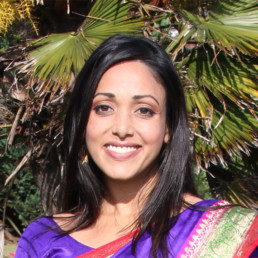
Written by Dr Nilufar Ahmed
Dr Nilufar Ahmed is a multi award winning Chartered Psychologist, Academic, and Accredited Psychotherapist. She works as an academic at the University of Bristol where her research and pedagogy focus on Inclusion and Engagement. Her work is situated in an antiracist and Intersectional framework. She is regularly invited to comment in the media on all things psychology and has delivered training, keynotes, and consultancy services across sectors including HE, business, and Government.
Originally published by The Conversation on 9/8/24
When news broke that a 17-year-old male had stabbed a number of young girls in Southport, misinformation swiftly followed. First, that the perpetrator was an asylum seeker or refugee who had come to the UK on a boat. This was discredited and information emerged that the individual was British-born. But the circulation of disinformation, including a fake, Arab-sounding name, led many to argue it must have been a Muslim male.
Though the perpetrator has no known links to Islam, violent, far-right rioters still mobilised to attack mosques. Islamophobic violence spilled onto the streets in the worst race riots Britain has seen in years.
The fact that this misinformation was so readily believed can be partly explained by psychology, and how we think about people who look like us, and about others who don’t.
People are conditioned to identify with their in-group – others who are like them on a range of markers such as race, gender, class or nationality. The maintenance of this shared identity largely requires “us” to be different (meaning better) than “them” by making negative inferences about them.
This automatic psychological response explains how people can see the self and the in-group as complex and fluid (for example, not all white people are criminals) but frame the out-group as homogeneous and fixed. This can lead, as we’ve seen, to some people casting all black men as dangerous, Muslims as terrorists, asylum seekers as opportunistic and refugees as “taking” jobs and healthcare resources, justifying the dislike and even hatred of the out-group.
The racism of this public reaction to a horrific attack on children is stark when you compare it to other recent events.
When a white male killed a 14-year-old black boy named Daniel Anjorin with a sword in May, protesters did not mobilise around the country to “protect children”. Neither were white men as a group deemed a threat to the safety of children.
Whenever crimes, however heinous, are committed by white perpetrators, they are more often viewed as the acts of an individual who was at fault because of mental health issues or falling in with the wrong crowd. There is a long history of disparate treatment of criminals in the media linked to race.
People are socially conditioned to think heinous acts are committed by outsiders. There are a number of cognitive biases at play here, including contextual bias, where decisions are influenced by background information rather than the crime itself, and affinity bias, where people prefer others who are like them.
These biases are present in individual cases, but also across the judicial system. Inequalities in sentencing perpetuate the narrative that people of colour are more dangerous and disposed to crime.
A study commissioned by the Crown Prosecution Service also found that people of colour are significantly more likely to be prosecuted than white people for the same crimes. Such inequity results in overrepresentation in prisons and with convictions. This then feeds the narrative that people of colour are more likely to commit crime – when in fact they are simply more likely to be prosecuted.
The Blame Game
In times of scarcity, this in-group/out-group bias can become simplified and exacerbated to justify withholding resources from the out-group, who the in-group perceives as “undeserving”. Out-group scapegoats offer an easy and reliable way of deflecting responsibility by those with power.
This is what has happened over the past 14 years in Britain. While the Conservative government created an unstable economic climate and deep poverty through cuts to public services and economic turmoil, it is politically convenient to suggest the reason for scarce resources is a small number of asylum seekers.
The previous government used the negative attitudes towards refugees and immigrants as a core pillar of its election campaign. Politicians used increasingly inflammatory language in relation to immigration, blaming immigrants for things like the housing crisis and depleted health resources as a way shifting attention from their cuts in spending.
Anti-racist counter-protests have organised all around the country. Simon Dack News/Alamy
Over time, the scapegoats have been boiled down to one homogenised group of people who are not white. This is apparent in the differential treatment of asylum seekers from Ukraine, who were welcomed to the UK and allowed to work and be housed.
Asylum seekers from the rest of the world are not allowed to work on arrival and receive just £49.18 a week. This feeds the narrative that white people work, while people of colour don’t (though somehow are simultaneously “taking our jobs”).
The relentless scapegoating dovetails with the psychological biases we are all socially conditioned to fall for, creating an “us” and “them” environment that can easily turn violent. The events of the past two weeks have awakened much of Britain to the consequences that can arise when society is defined this way.
The UK Race Riots, Summer 2024 - The Aftermath

Written by DiverseEd
Diverse Educators started as a grassroots network in 2018 to create a space for a coherent and cohesive conversation about DEI. We have evolved into a training provider and event organiser for all things DEI.
It has been a difficult summer for many people across the UK as hate has manifested itself online and on the streets of our country.
The loss of innocent lives have been used as an excuse to riot, with those enacting civil disorder and violence under the cover of protesting and the right to freedom of speech.
Protests quickly became riots. Riots escalated into acts of terrorism.
And let’s not forget that the spate of racist, islamophobic, anti-migrant incidents took place during South Asian Heritage Month.
Many pupils, educators and parents/ carers will be returning to school in the coming weeks scared and traumatised by what has happened, by what they have experienced and by what they have witnessed. There will also be a number of these groups who are also emboldened in their attitudes, beliefs and behaviours. So, how do we challenge this?
Some questions for us to reflect on and to discuss as part of our DEIB strategic approach:
- How prepared are we to create safety, to offer support, to protect our communities?
- How will we take an anti-racist stand as a profession, as organisations and as leaders?
- How will we review all aspects of school life moving forwards through an intersectional lens?
- How will we ensure our approach to supporting our school communities is trauma-informed?
- What training have your different stakeholders had, and what further training and support do they need?
- How are we supporting the wellbeing of your DEIB leader/ working party as they manage the emotional tax of doing the necessary work that is likely to be triggering for their own lived experience?
- Do we have staff briefings ready and are assemblies, tutor activities and PSHE lessons prepared?
It is important to ensure that these questions move from being words to become actions.
In our work at #DiverseEd we encourage people to consider how we are developing consciousness, confidence and competence in ourselves and others. We also encourage our network to look in the mirror before we look out of the window – we need to do the inner work alongside the outer work to make sure what we do is authentic, considered and not performative.
We appreciate that:
- There is a lot to process.
- There is a lot to do.
- There is a lot of overwhelm.
We need to learn the lessons from the Anti Racism work schools jumped to in the aftermath of George Floyd’s murder – it is important for us to take action but it is more important to think about what needs to be done in different school contexts. How do the incidents this summer feed into our ongoing DEIB work? How do we commit to proactivity instead of reactivity?
Let’s learn from the mistakes made in the aftermath of George Floyd’s death. Let’s not be silent, but let’s consider who is doing the talking and presenting to each stakeholder group. Let’s be mindful of who we have consulted, which voices have been listened to to frame the message and how it is delivered and how it lands.
Let’s also consider how we are working with our local community. What does a connected community look and feel like for all community members? How are we building bridges, creating safe spaces, carving out opportunities to listen and nurturing collaborative partnerships?
Below we have collated resources and we signpost support that has been shared by our network to help navigate the next few weeks as we return to school.
As an anti-racist school leader we can show our support by undertaking the following key reading and actions to get started:
- Dr Nilufar Ahmed – read and share this article exploring the hypocrisy at the heart of racist riots.
- Sir (Mufti) Hamid Patel – read and share this article considering After the riots: The role of schools in healing our communities
- Professor Paul Miller – watch and share this video summary of the race riots.
- SARI – read and share this guidance on how to respond to hate crimes.
- Jeffrey Boakye – read and sign the Open Letter re Safeguarding and Child Protection
- Hope Not Hate – send a copy of the HNH letter to your local MP
- BAMEED – read and share their curated toolkit of anti-racism resources for schools.
Some free training events as term starts which you may wish to attend/ share with colleagues:
- Facing History – attend and share this free webinar on Supporting Teachers to Respond to the Summer’s Civil Unrest on 28/8.
- APEX Educate – attend and share this free webinar on Reckoning with the riots – Addressing the aftermath in schools on 9/9.
- Still I Rise – attend and share these free sessions with Orla McKeating with guest contributor Baisat Alwiye
Some organisational statements in response to the riots to read and consider your own public messaging as an organisation:
- Association of Colleges
- CCT
- Fair Education Alliance
- Liberal Democrats
- Mayor of London
- Teach First
- The Big Issue
- Women’s Aid
Some thought-provoking posts by individuals in response to the riots to read, reflect on and discuss with colleagues:
- Chanel Noel – signposting to further support
- Christina Brooks – some tips on small acts we can all make to support others
- Gulwali Passarlay – sharing the fear they are experiencing
- Hannah Naima McCloskey – a post exploring how events are labelled and framed
- Dr Matt Jacobs – on white allyship and creating safe space
- Naomi Wilcox-Lee – sharing resources on inclusive language
- Pete Olusoga – a blog exploring the media portrayal of the riots
- Rachel Carrell – sharing tips on how to talk to children about the riots
Some next steps to consider getting involved in:
- Teaching Working Party and Curriculum Review
- Whilst not forgetting the brilliant work that The Black Curriculum have been doing for the last 5 years.
Some further resources to review and share:
- PSHE Association – Belonging and community: addressing discrimination and extremism
- Spark and Co – Standing Together Against Racist Violence: Support for Communities of Colour in the UK
Some further reading to read and discuss with colleagues:
- Dawn Butler – There’s a huge difference between free speech and hate speech
- Nafeez Ahmed – Exposing the Real UK Race Riot Instigators: The Key Players and Transatlantic Network Around Tommy Robinson
- Torsten Bell – Despite appearances, Britons are more tolerant than ever
- Zahra Sultana – ‘People Aren’t Going To Forget What’s Been Said, And How They’ve Been Made To Feel’
Some final resources and supports from us at Diverse Educators:
- Our DEIB toolkits including one on Anti-Racism
- Our thematic DEIB training sessions including one on Anti-Racism
- Our DEIB Directory with a list of organisations who can support you in unpacking race and religion/ belief in your context.
- Our free virtual event on September 21st on Building a Global Majority Workforce and Pipeline.
Heart Stories and Community

Written by Samira Vance
Diversity, Equity and Inclusion Leader and Consultant. Founder of the Thailand DEI Hub.
As I journey into the next chapter of my life and career, I am finding myself taking stock and feeling gratitude for many things. As I intentionally work to engineer this next phase, I want to share one aspect that I have come to realise is essential to build and find. A community of ‘my people’.
To clarify, by ‘my people’ I don’t necessarily mean BIPOC folx but rather individuals and groups that endow me with a sense of true belonging. The people with whom you truly and fully unmask and allow space for them to do the same. At the start of this year, I attended two incredible conferences (AIELOC and DEIx24) and I was overwhelmed at the power of community. I have since set up the Thailand DEI Hub to provide a similar sense of community and peer support after being inspired by both conferences. Whilst I have found ‘my people’ along my professional journey, it was positively overwhelming to be around so many that could potentially be ‘my people’ all in one place. It is a great thing to find, witness and be amongst the souls that nourish one another.
One of the things that was consistent was the level of vulnerability shown by attendees. At DEIx24, Margaret Park asked us to consider what constitutes a safe place. Is a statement to that effect all that is needed for the feeling of safety to be felt by participants? Many of us have felt the disconnect between being told that it is a safe place when our body and gut tell us otherwise. Yet, in these instances with strangers, online ‘friends/connections’ and acquaintances, the level of vulnerability very clearly indicated the sense of safety felt by many.
A fellow attendee, spoke of wanting to connect people with ‘similar heart stories’. Heart stories. The phrase stuck with me. After some pondering, I have decided that heart stories are those defining, poignant stories of our lives. The ones that make us who we are and the ones that describe our journey through life. Are they what bind us? Do heart stories recognise each other? Indeed hearing my stories and those of my loved ones spoken back to me without my uttering a single word made me feel heard. Seeing the raw emotions through vulnerability that mirrored my own, moved me to connect. I recognised the heart story because it was similar to my own. The snapping of the fingers, the head nods and the ‘Mmms’ told me that the speaker and I were not alone. Those moments, conversations and experiences moved me to make space in my life for these strangers. We could speak truth to our stories where we were understood.
It was a metaphorical embrace signalling understanding, joy, sadness, a spectrum of emotions all at once but most of all, safety in being able to share those emotions with others. It said:
I see you, even as you hide
I hear you, even though you haven’t spoken
I know you, although we’ve never met
I am you, or at least that what my heart thinks
I feel your heart story
At AIELOC, another workshop leader spoke about safe spaces in relation to indigenous practices, specifically that of the Muscogee (Creek) Nation and roles of different members of the tribe. As BIPOC folx, but other minoritised groups too, spread across the globe, are we all yearning for places where we belong?
So many of us work to create equitable and inclusive spaces with the aim of fostering belonging, but what is the cost of existing in spaces not designed for us at this moment? What is the cost of continuing to mask day in, day out? I am very fortunate in that I have been able to find the people in my professional life with whom I can exist as my authentic self but the reality remains that for minoritised groups, this is consistently not the case outside of these relationships and spaces. Whilst we are working on systemic change, it is vital that we find our communities and safe spaces.
As I move back to England (my home), I do so with the recognition that I am a member of both visible and non-visible minority groups. I think about the communities, ‘tribe members’ and safe spaces that I will need in personal and professional settings to both support my mental health and allow me to sustainably carry on with the work that I do.
If you know of any amazing communities in the South East of England or ones based online for black women, mixed-race women, people of south-asian heritage, neurodivergent people/parents, parents of black children, DEI professionals and/or not-so-fit basketballers please do share and connect with me if you’d like! The word underpinning my vision board this year was ‘nourish’ and I can absolutely see the power of communities and people to provide spiritual, mental and sometimes intellectual nourishment and strength.
Pride Month 2024 - Responding to homophobic language: guidance for schools using Oracy and No Outsiders
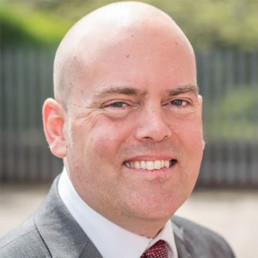
Written by Andrew Moffat
Andrew Moffat has been teaching for 25 years and is currently PD Lead at Excelsior MAT. He is the author of “No Outsiders in our school: Teaching the Equality Act in Primary Schools” and “No Outsiders: everyone different, everyone welcome”. In 2017 Andrew was awarded a MBE for services to equality and diversity in education and in 2019 he was listed as a top ten finalist in the Varkey Foundation Global Teacher Prize.
Ensuring equality for all cannot be achieved if any group of people feel they are unseen, unwelcome or feel targeted because of the person they are. As teachers, we strive to ensure that everyone feels seen, everyone feels welcome, and no one feels they have to hide their true selves, or parts of their identity.
In preparing children for life in modern Britain, we need to be clear and consistent in our efforts to make schools a safe place where children understand there are different ideas in society and prejudice may exist in the outside world, but prejudice and discrimination do not exist here, because in our school, there are “No Outsiders” and everyone is welcome.
Children are allowed to hold different views. I am a big champion of oracy as it encourages children to see both sides of a debate and understand it is possible to hold two views at one time. However, while different views are embraced, the othering of a group of people is not allowed. A child can disagree with a point of view and still show respect; this is the golden thread of a no outsiders ethos.
If a child chooses to use homophobic language, this must be tackled immediately. Children must understand there is no tolerance of prejudice at our school. It is the job of any adult to respond to homophobic language, as this is a safeguarding issue (KCSIE, 2023, “Children who are LGBT” page 51),
A quick response is; “Excuse me?” or, “What do you mean by that?” followed by, “And what do we say at our school?” to which the expected reply is “There are no outsiders”. Reiterate, “That’s right, there are no outsiders here, so you need to think about the language you are using. How are you going to put that right?”
All homophobic incidents should be recorded, and parents informed.
If homophobia arises in a debate where no individual is being targeted but there are attitudes forthcoming that need to be addressed, make sure they don’t go unchecked. An oracy framework enables us to challenge such attitudes effectively by asking the class to respond; “Would anyone like to respond to that?”. If the comment is offensive, for example if a child says, “gay people are wrong” it’s important that the adult responds immediately along the lines of;
“Can we think about the language we are using here… those ideas may exist in the outside world, but we need to be really careful about the words we use here. To say something is ‘wrong’ is different to saying, you ‘don’t agree’ with it. Do you want to re-phrase so that you are not othering anyone or being offensive?”
“What does the law say about this?” (The Equality Act, British law says it’s ok to be LGBT)
“What do we say at our school about different people?” (We say there are no outsiders, and everyone is welcome here.)
It’s vitally important the teacher addresses the attitudes while not giving their own opinion so we don’t get in to an argument or lead the children down any particular path. What we need to do instead is remind children it is ok to hold different views (“and that’s what makes this debate so interesting”) and we can still show respect and non-judgement. It’s ok to disagree with one another, the important thing is that everyone still feels they have a place here, including the child who is being offensive. It is the child’s views that are not welcome; the child is still welcome.
If a child brings their faith into the discussion; “My religion says it’s wrong”, respond in this way:
“You’re right, there are different views about this in different religions. And that’s the best thing about living in the UK- we have different views and beliefs, freedom of speech and democracy, and we have the Equality Act which protects religion and belief, so people are allowed to hold those views under British law. Who else is protected under the Equality Act? (disability, age, race, pregnancy and maternity, marriage and civil partnership, sex, LGBT) hmmm that’s interesting isn’t it – on the one hand you have religion and belief and on the other you have LGBT … both protected, both allowed… so I suppose we have to find a way to respect both views. We can co -exist without saying the other is wrong….”
And then open out the conversation, move it along using the oracy technique; “Who wants to build on that?”
Keep coming back to “That’s why we say there are no outsiders… we can have different opinions, and we can still respect each other. No one is pushed out because of their religion, their race, or because of their sexual orientation.”
I recognise that these conversations are not easy but they are important and we need to be having them with our children. My advice is to practice responses with each other as a staff team.
Here are some useful assembly links from www.no-outsiders.com:
https://no-outsiders-assembly.blogspot.com/2024/05/pride-2024.html
Assembly pictures : Football shirt (no-outsiders-assembly.blogspot.com)
Assembly pictures : football (no-outsiders-assembly.blogspot.com)
Assembly pictures : Bathroom (no-outsiders-assembly.blogspot.com)
Assembly pictures : Beano (no-outsiders-assembly.blogspot.com)
Assembly pictures : LGBT history month (no-outsiders-assembly.blogspot.com)
Assembly pictures : What is homophobia? (no-outsiders-assembly.blogspot.com)
Assembly pictures : Curly hair (no-outsiders-assembly.blogspot.com)
https://no-outsiders-assembly.blogspot.com/2024/06/veteran.html
South Asian Heritage Month: free to be me.
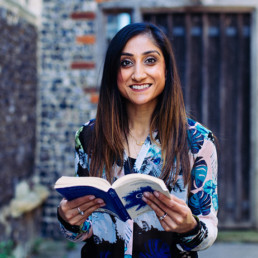
Written by Zahara Chowdhury
Zahara is founder and editor of the blog and podcast, School Should Be, a platform that explores a range of topics helping students, teachers and parents on how to ‘adult well’, together. She is a DEI lead across 2 secondary schools and advises schools on how to create positive and progressive cultures for staff and students. Zahara is a previous Head of English, Associate Senior Leader and Education and Wellbeing Consultant.
This year’s theme for SAHM is beautiful: free to be me. As we celebrate lived experiences, storytelling and authenticity, it seems only right that freedom and embracing our individual narratives is next.
This year’s theme has made me think where have I felt my most free? It’s not an easy question to answer. You see, growing up South Asian, (in my case, a British Pakistani Muslim, who’s family was born and raised in Africa), masking your identity can often feel normal, particularly when masking makes you feel safe in public, school and at work. Returning home, comes with its own comforts and conflict: finding joy in your culture and sticking out because you don’t really ‘fit’ within it either. Freedom then becomes a rather grey area and one that does not feel easily attainable.
Over the years, particularly I adulthood, there are a few spaces where I have come close to ‘free’: one was in my classroom. When teaching, my classroom was predominantly full of students who looked like me, shared similar lived experiences and most importantly we connected over an understanding of shared ambitions, aspirations and values. I felt free in an office with a colleague who shared my heritage; breaktimes and lunchtimes were full of laughter, candid conversations and asking each other, ‘what did your mum use to store atta in the kitchen?’, ‘were your sofas covered in shrink wrap too?’
Since then, I have felt most free in conversation with South Asian educators across the sector, most recently in conversation learning all about the wonders of Pehalwaan Juice (if you know you know…I definitely didn’t!). In many ways I share this with caution: for someone who works to amplify diversity, is there a problem if my freedom is sought and felt within my own community? Do I then just enjoy being a part of my own echo chamber?
The answer is no. Within these spaces diversity thrives. Diversity of thought, feelings, faith, work, experiences – being South Asian does not make us all one and the same and every South Asian friend, colleague and student I have connected with has a different story and identity. If anything, the freedom I feel in these spaces makes me more determined to centralise my identity in mainstream spaces too.
My childhood and teen years were branded with the term ‘coconut’ – in many ways, I didn’t think much of it then and I don’t think much of it now. What I do think about now though is how the identity of a ‘coconut’ lacked freedom. Consciously and subconsciously (and I really hope fellow South Asians can relate) I spent my childhood and adolescence straddling between several identities, depending on the audience – and I happened to be pretty good at it; I still am (we are pros when it comes to masking). I (still) do not know enough about my heritage, and I still don’t feel very ‘white’ either. Perhaps this is what imposter really means.
I studied all of this at university, wrote about it for my dissertation. 15 years later, specialising in a field that very much reflects the truth of my life couldn’t be more imperfectly perfect, no matter how much I question it on a daily basis (awareness and celebratory months are only one piece of the ‘work’). If anything, my experiences as a teacher and now EDI trainer, speaker and consultant are in some ways liberating and in other ways, revealing of just how far ‘we’ (marginalised and minorities in the West) have to go to be free.
South Asian Heritage is rich, diverse, nuanced and just huge – I am so naive and ignorant of its beauty. There is so much to learn. I’m not sure I’m free to be me just yet…but I think (and hope) we’ll get there soon.
In light of this and all of the learning and connections we have to make, I’m excited to share a space, network and group for South Asian Educators to connect, talk and be. Assistant Headteacher and Author, Yamina Bibi has said, the network will be a space ‘for anyone who is looking for a safe space for those of South Asian heritage. The challenges and issues facing South Asian Educators is somewhat different to those from other heritage groups as they are often thought of as the hard workers, obedient, quiet, shy, oppressed by colleagues and society in general. This network will support more educators to have their unique voices heard.’ We want this network to be collaborative, safe, empowering and a community where we can learn from one another too. Please Join us here!

